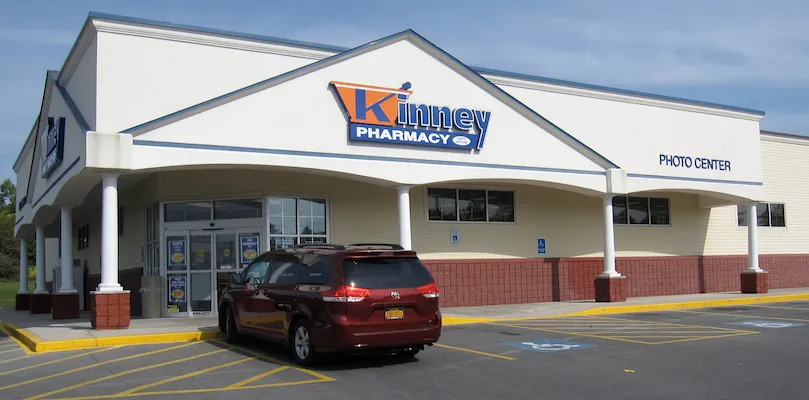In the first of a two-part series, leaders of industry associations present their expectations for pharmacy operators for this year. The views of other organizations will appear in the next issue of Chain Drug Review

Susan Cantrell
As we embark on a new year, there is value in taking a moment to reflect on the current state of American health care and its future. The past year has been dynamic, defined by cutting-edge innovation and promising advances. This is the result of the work of many parties across the industry and the larger ecosystem of policy makers and advocates, all of whom strive diligently to deliver necessary treatments to patients in the United States.
From our vantage point at the Academy of Managed Care Pharmacy (AMCP), 2024 heralds immense promise. As an organization, AMCP has a unique perspective on American health care. We are often attuned to developments and machinations that much of the public does not usually see. But this lack of visibility about the role of managed care pharmacy belies its impact. Ensuring that prescription medications, treatments and therapeutics are both accessible and affordable is an essential step toward our goal of greater health equity.
When it comes to health care, there is often a bewildering amount of information that can be challenging to process and understand. We at AMCP realized that we need to be more intentional in explaining the crucial role that managed care pharmacy plays. That’s one of the main reasons that we decided to devote the resources to publish the “Access, Affordability, and Outcomes: The Value of Managed Care Pharmacy” report. This comprehensive publication was the work of many hands over many hours, and we believe that it was worth the effort.
Within the Access, Affordability, and Outcomes (AAO) report, we included clear definitions of the tools employed by managed care pharmacists as well as key statistics about health insurance and prescription drug coverage in the United States. Although straightforward in concept, this compendium is important because it lays out the sheer scope of the challenge. Prescription drug spending in the United States has risen drastically over the past few decades from $40 billion in 1990 to $378 billion in 2023 (net of rebates).
Ensuring that Americans — particularly those most in need — can obtain the treatments they need fits firmly within the responsibilities of managed care pharmacy. In fact, in 2021, 85% of Medicaid beneficiaries were in some type of managed care. Given the high costs of the most innovative treatments, managed care pharmacists are essential in ensuring appropriate and equitable prescription drug use.
Without explanation, issues like prior authorization can have a negative connotation. The AAO report goes a long way in identifying and explaining how the tools at the disposal of managed care pharmacy — such as Drug Utilization Review and Medication Therapy Management — help achieve this important mission.
Looking ahead to 2024, there are several important developments to keep in mind. The Inflation Reduction Act (IRA) is one of them; this expansive piece of legislation will have significant implications for American health care. Specifically, September 1, 2024, is a key date, as CMS is expected to publish the maximum fair prices for the initial list of 10 drugs up for price negotiation. Moreover, we at AMCP will be keeping a close eye on how health plans are preparing for the launch of the Medicare Prescription Payment Plan (MP3) on January 1, 2025.
But the IRA — while it dominates much public discourse — isn’t the only issue that will define 2024. I’ve discussed the AAO report at length intentionally because its core messages of access, affordability and outcomes have helped us at AMCP frame our thinking about what 2024 might bring. As such, we wanted to focus on three distinct areas tied to the AAO report’s themes that we believe will help to define the future of managed care pharmacy and health care in our country in the coming year.
Access: The issue of prescription digital therapeutics (PDTs) immediately comes to mind. We live so much of our daily lives in the digital realm that it should be no surprise that the world of health care is likewise affected. Legislation such as the Access to Prescription Digital Therapeutics Act of 2023 is crucial because it would make these innovative treatments more accessible for millions of Americans.
Currently, PDTs, which are software-based therapies providing a clinical benefit to patients, do not fit into one of the statutorily defined coverage categories for the Medicare or Medicaid programs. This is a problem because it leaves beneficiaries — many of whom are from America’s most vulnerable populations — without access to these cost-effective treatments.
Legislation remains the most effective way to pursue this goal; previous regulatory efforts to expand Medicare and Medicaid coverage have not been successful enough. As a result, AMCP will continue leading the call to pass this bill in 2024 to authorize coverage of PDTs.
Affordability: The field of biosimilars is central to the discussion. Ongoing advances in biosimilars have a strong potential to make treatments more affordable for patients. As the adoption of biosimilars continues to increase, the cascading effects will be immensely positive, freeing up resources for the rest of our health care system.
Along with others, AMCP is doing its part to hasten advances in biosimilars. In 2015, we established the Biologics & Biosimilars Collective Intelligence Consortium (BBCIC) to help drive the process of generating evidence for novel biologics, their corresponding biosimilars and other related products. BBCIC has been an essential player in this space for years and, most recently, last October it was awarded a $1.4 million grant from the Food and Drug Administration to enable further biosimilar research. The grant will support a new BBCIC study to identify opportunities and challenges in using foreign data and help speed up the biosimilar approval process.
Outcomes: We at AMCP recognize that the most important results come through our strong partnerships — that few tangible gains can be made without others. It’s one of the reasons that AMCP is such an enthusiastic supporter of the Equitable Community Access to Pharmacist Services Act (ECAPS). Pharmacists play a vital role in local communities; collaboration between policy makers and industry players will help patients in our most underserved areas.
Almost 90% of Americans live within five miles of a pharmacy, and so pharmacists represent a crucial touchpoint for Americans seeking health care. Particularly in rural areas, pharmacists provide reliable access to testing, vaccination and treatment for COVID-19, RSV, the flu and other threats to public health. If signed into law, the ECAPS Act would enable pharmacists to carry out vital services for beneficiaries of Medicare Part B by facilitating coverage and reimbursement.
2024 represents an important moment in our pursuit of a more equitable health care system. I’m honored to see the outstanding work that AMCP’s members do every single day. Because of their commitment to managed care pharmacy, prescription drug care and coverage are becoming more accessible and affordable for millions of Americans — and that’s an outcome that we can all hope for in the coming year.
Susan Cantrell is the CEO at AMCP.









